卷积神经网络 CNN 详解:原理、结构与应用指南 | AI技术
· 4 min read
Present version 1 - Convolutional Layer
Image Classification
对电脑来说,一张图片是一个三维的 Tensor(维度大于 2 的矩阵 --> Tensor)。
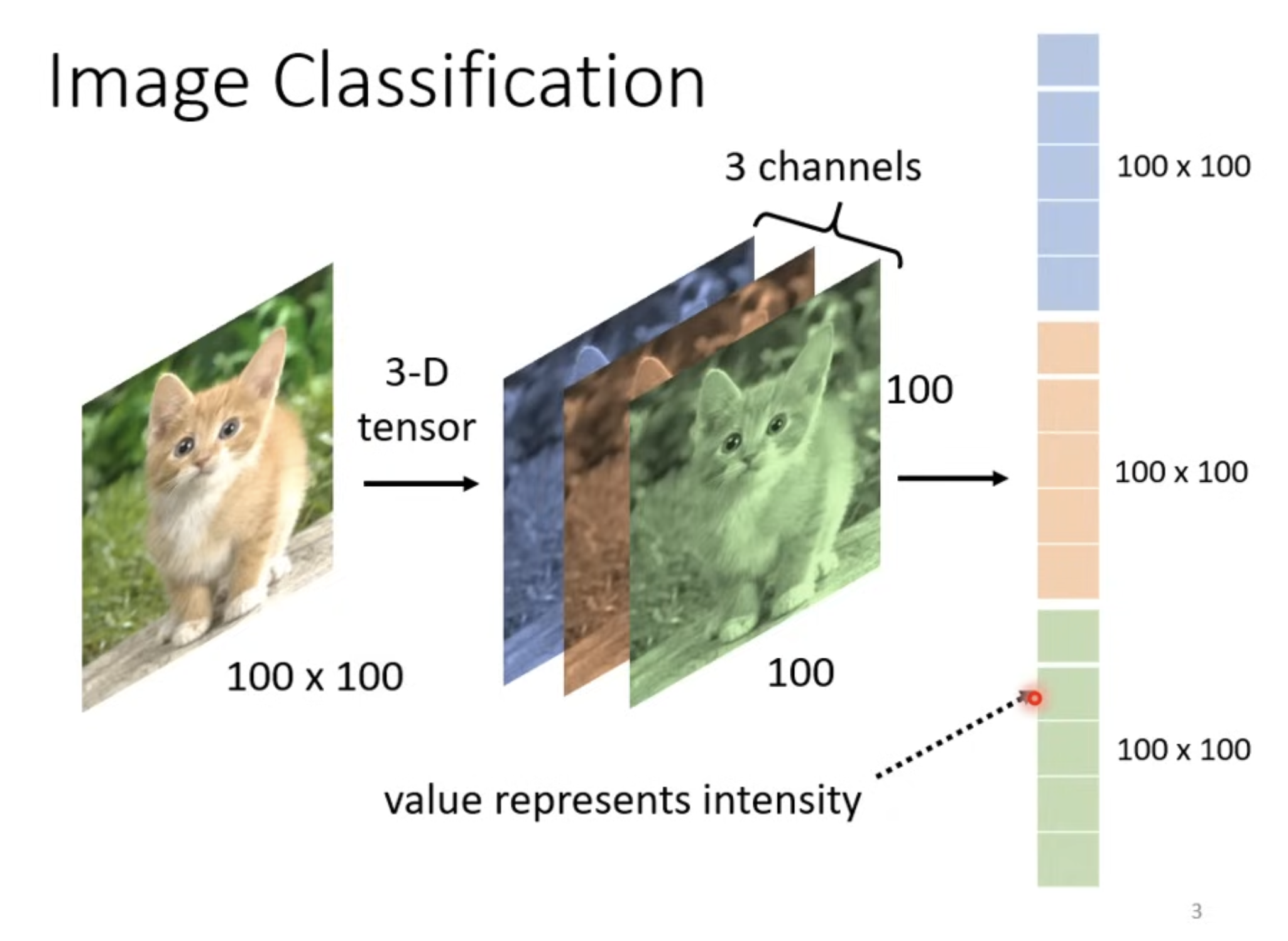
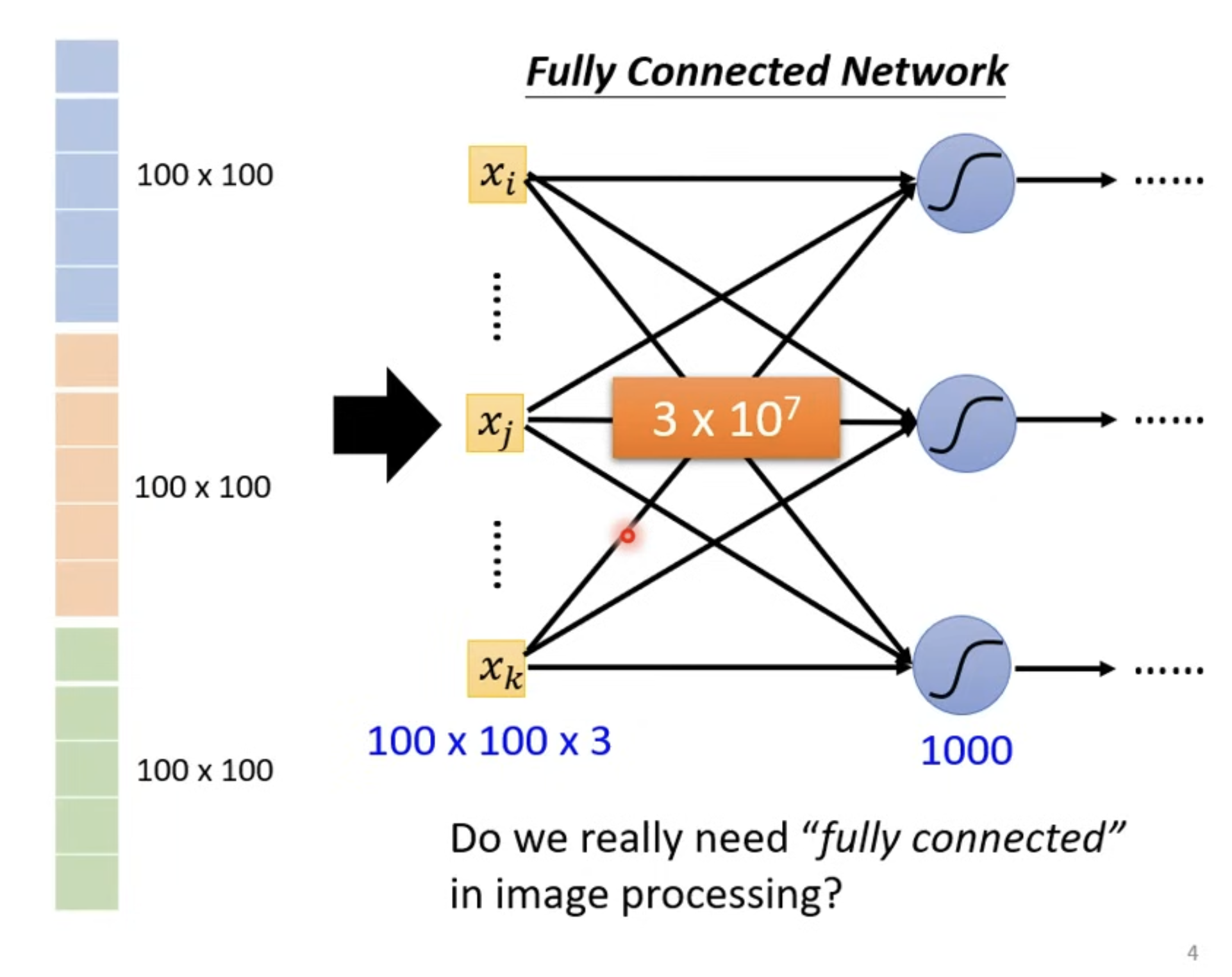
Observation 1
我们可以紧紧通过图片的某些特征判断图片中的物体可能是什么?
Simplification 1
一个 neural 不需要看整张图片。
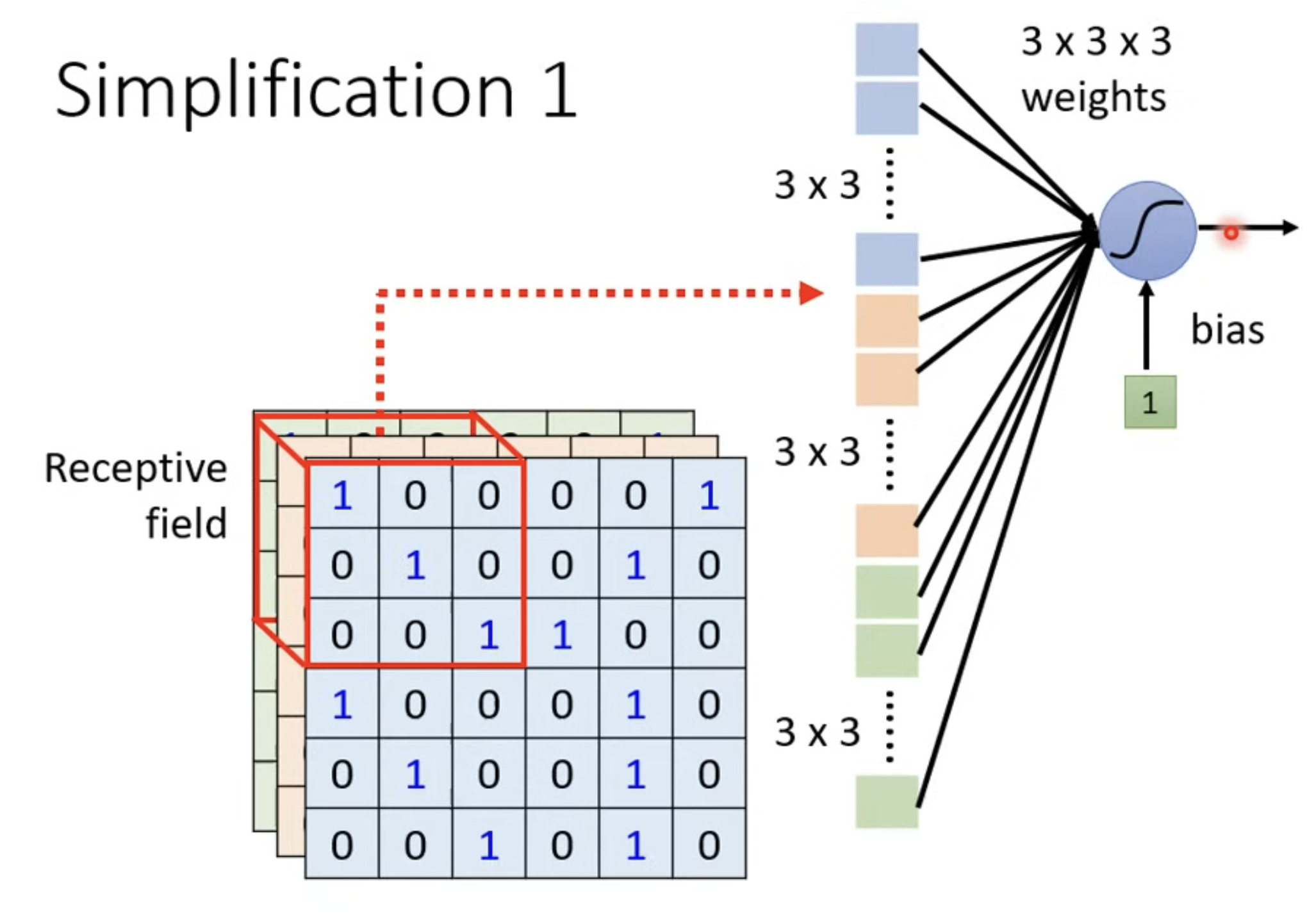
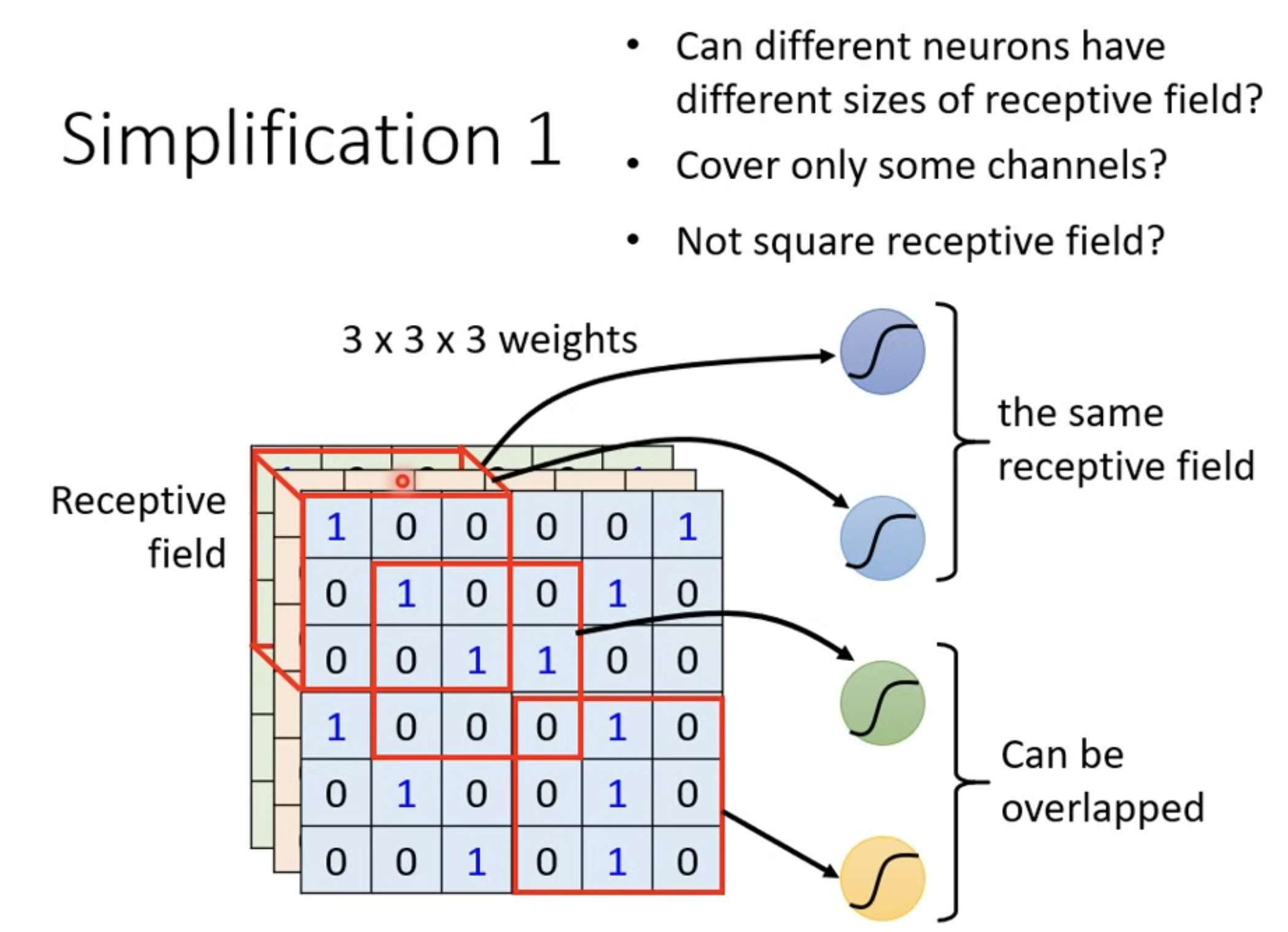
Simplification 1 - Typical Setting
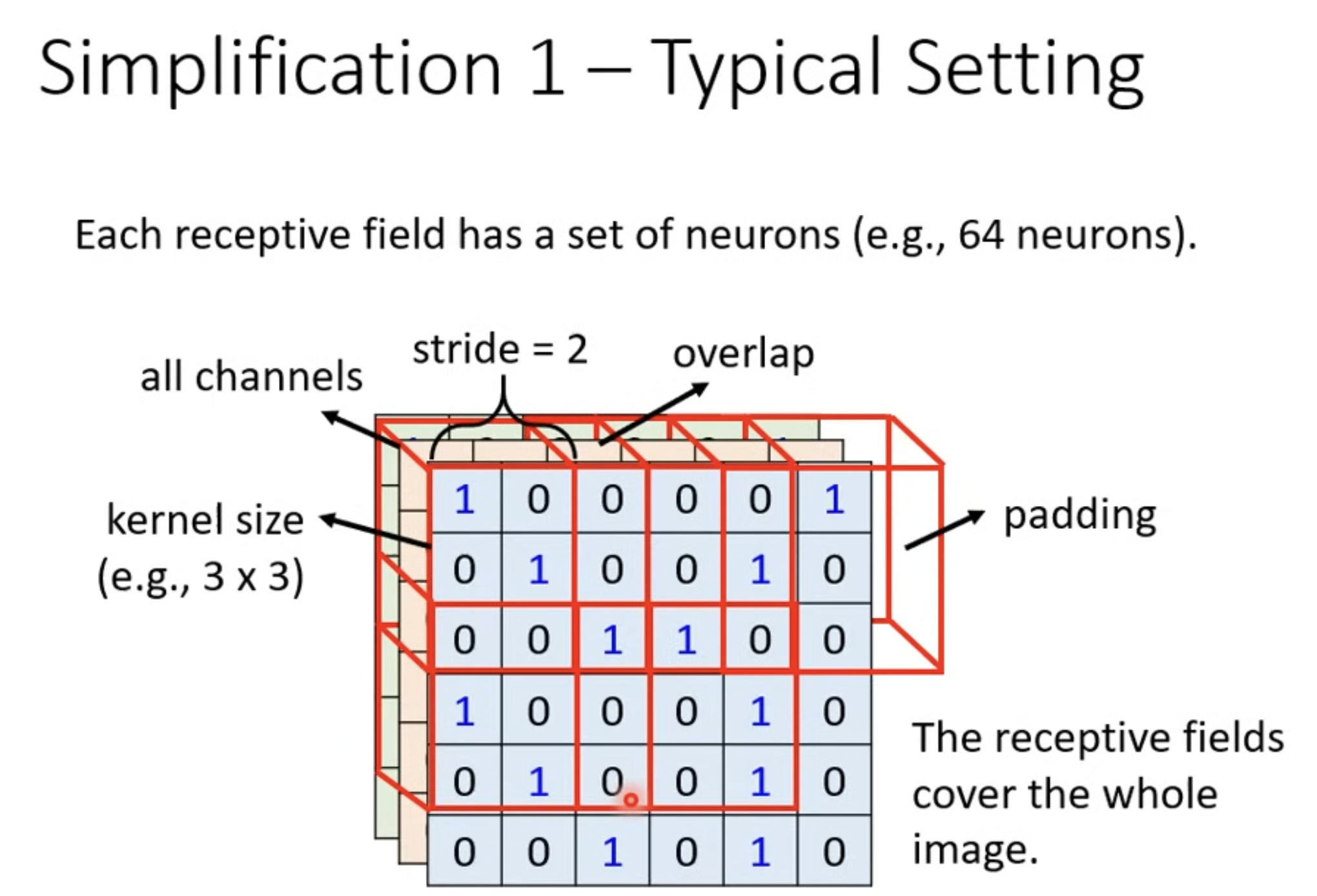
Observation 2
The same patterns appear in different regions.
Simplification 2
parameter sharing.
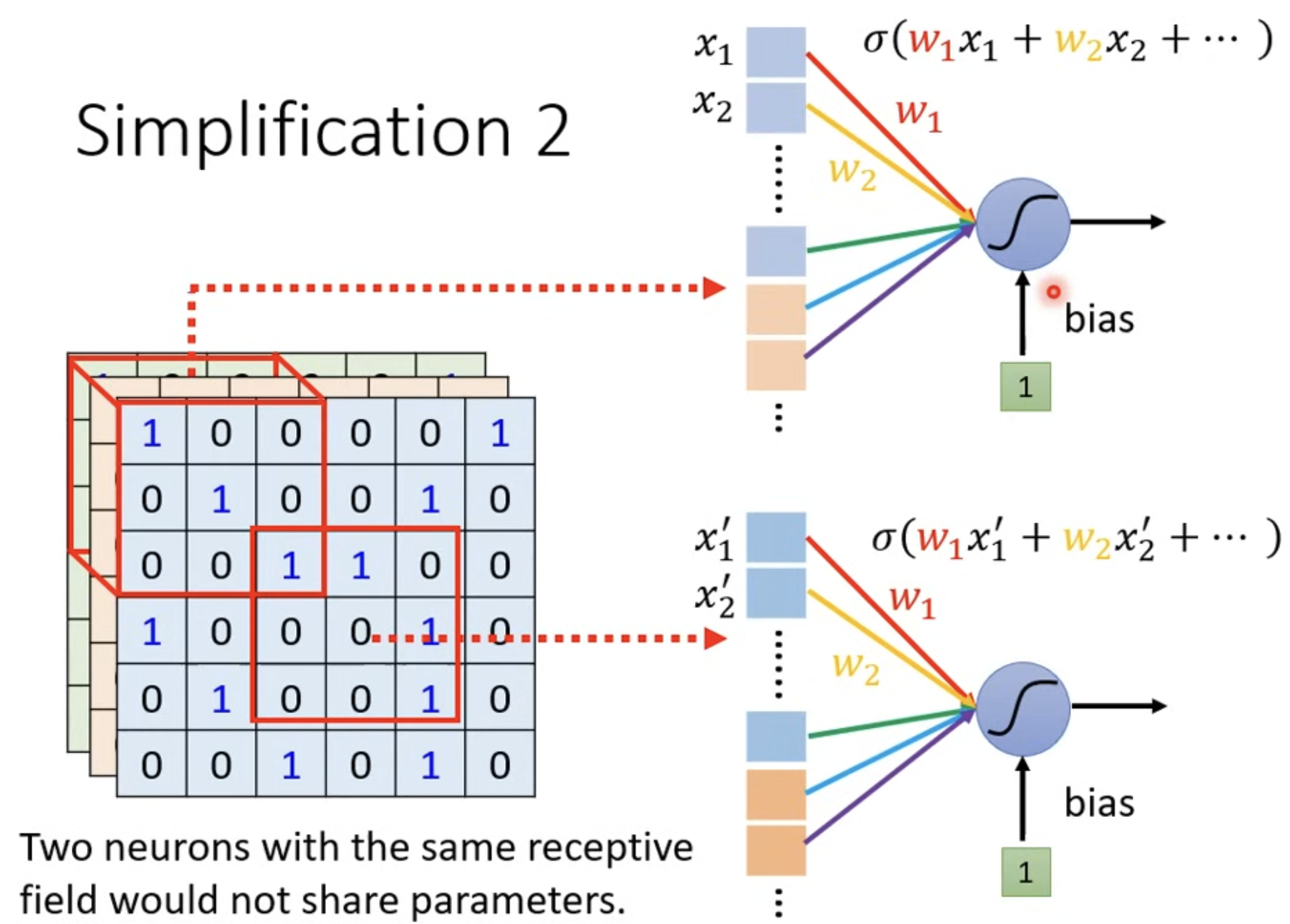
Simplification 2 - Typical Settings
Each receptive has a set of neurons (e.g., 64 neurons).
Each receptive field has the neurons with the same set of parameters.
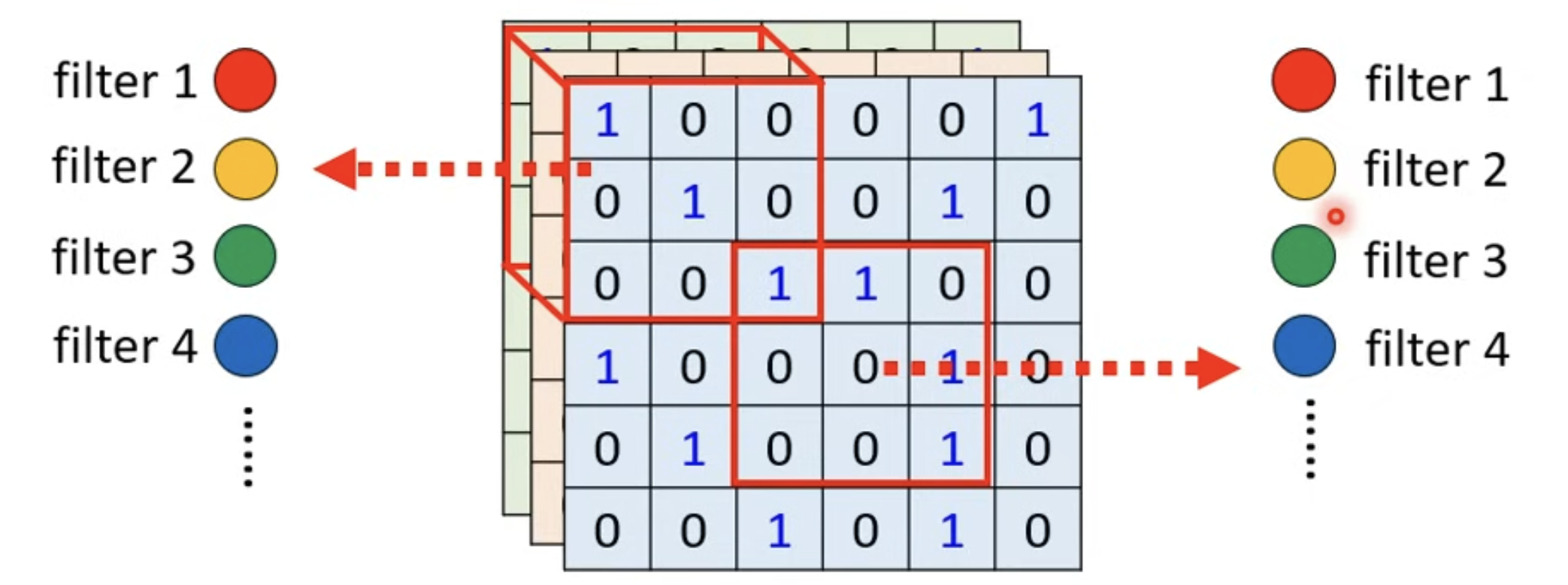
Benefit of Convolutional Layer
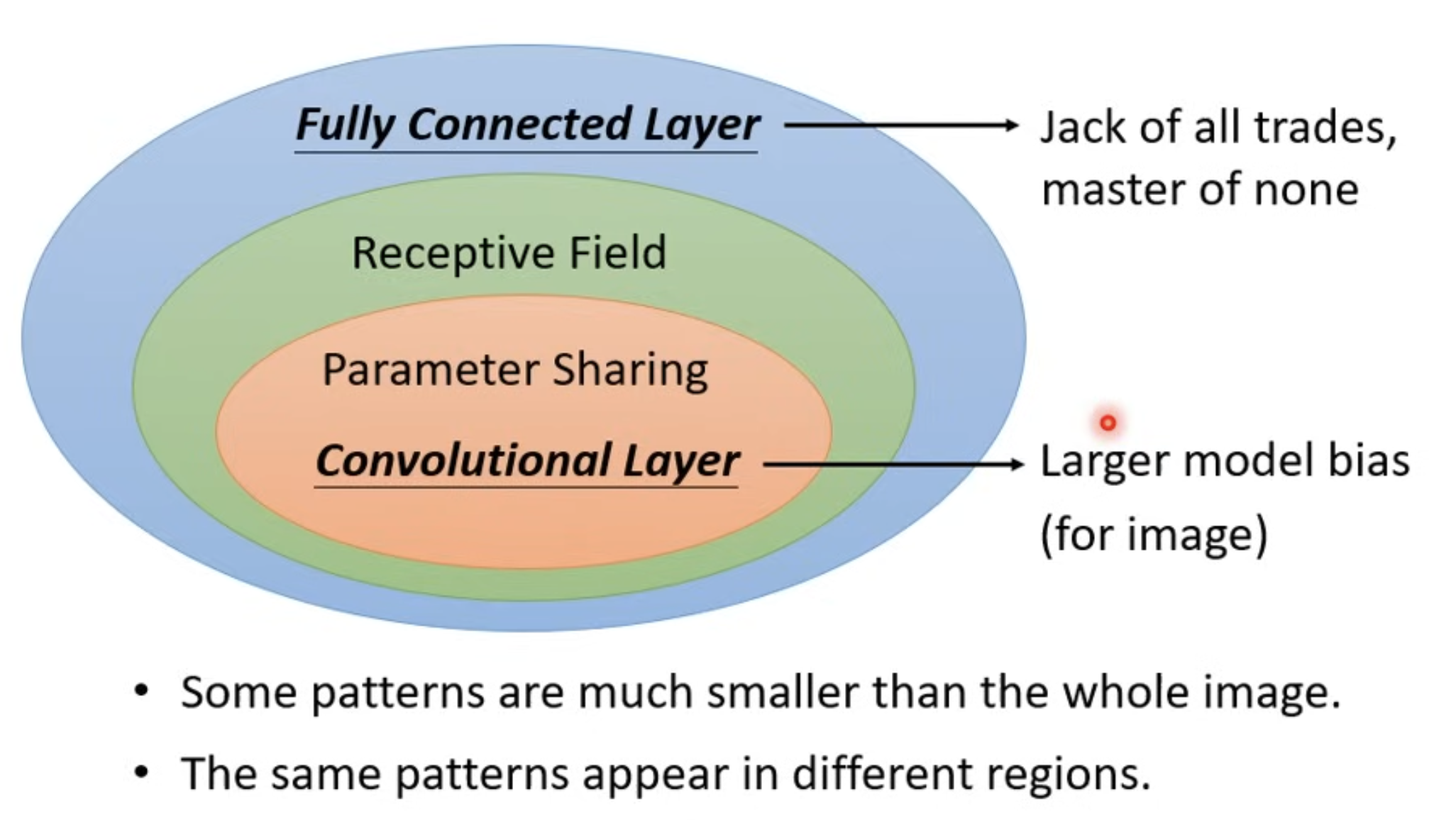
Present version 2 - Convolutional Layer
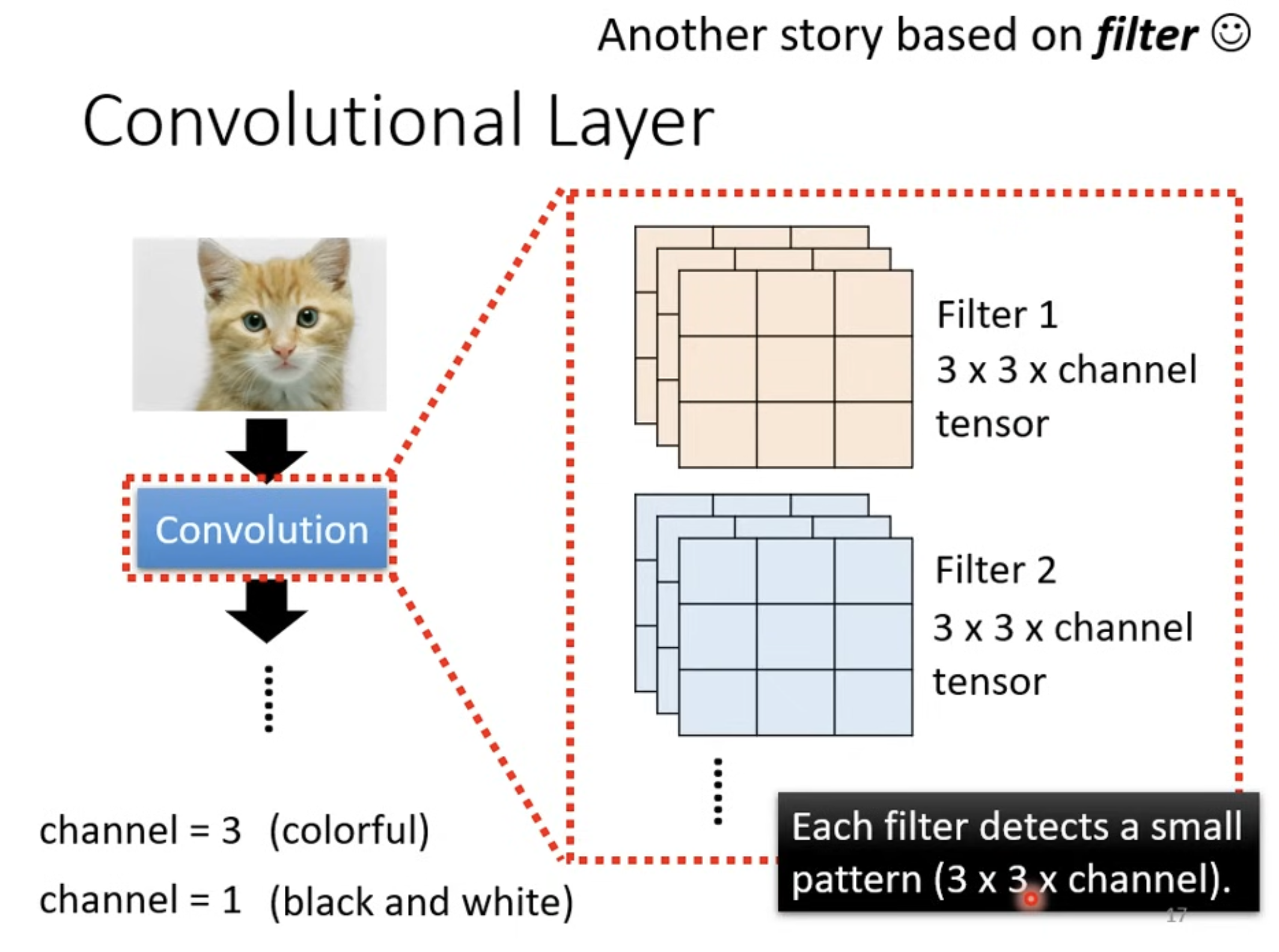
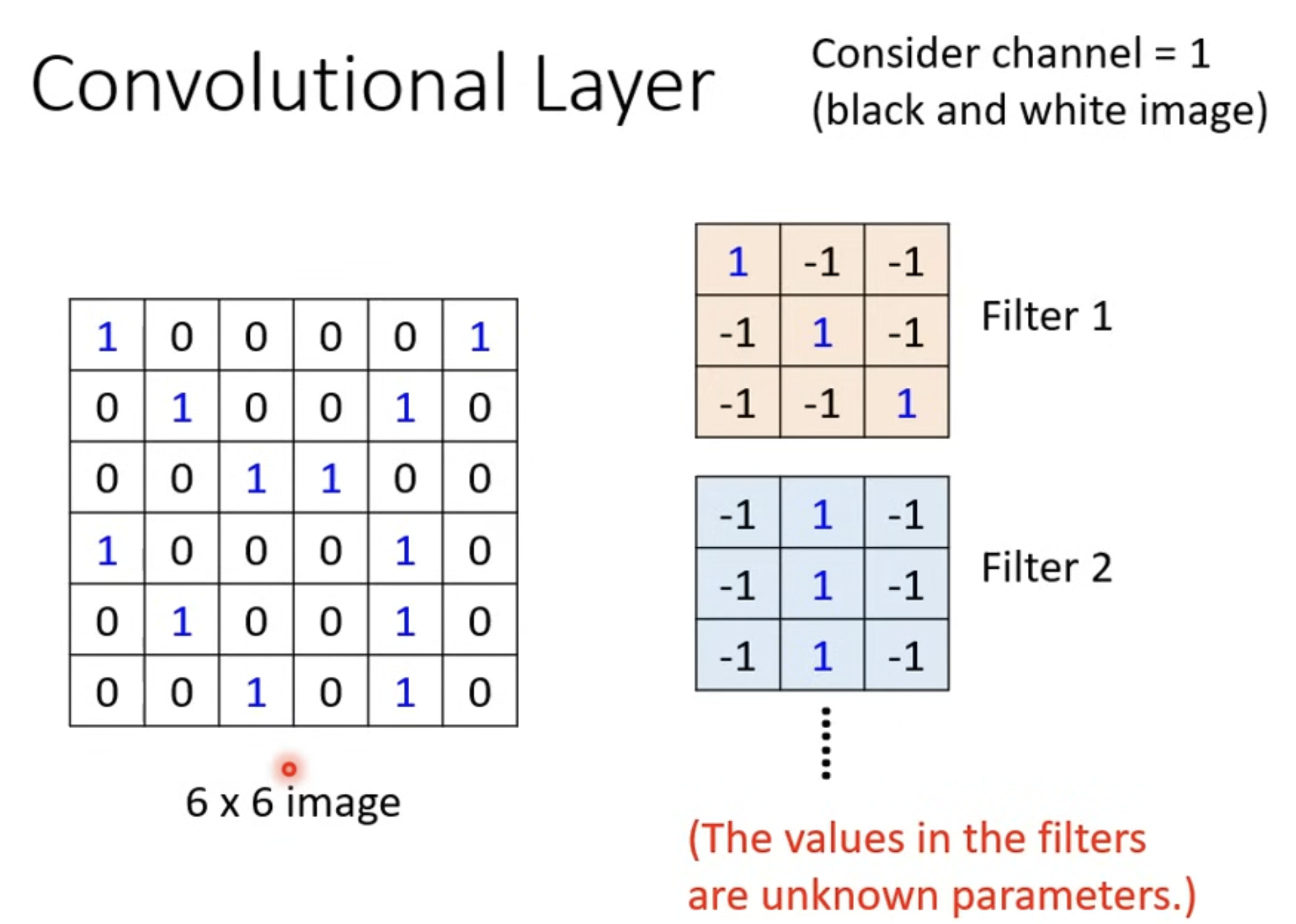
Filter 1
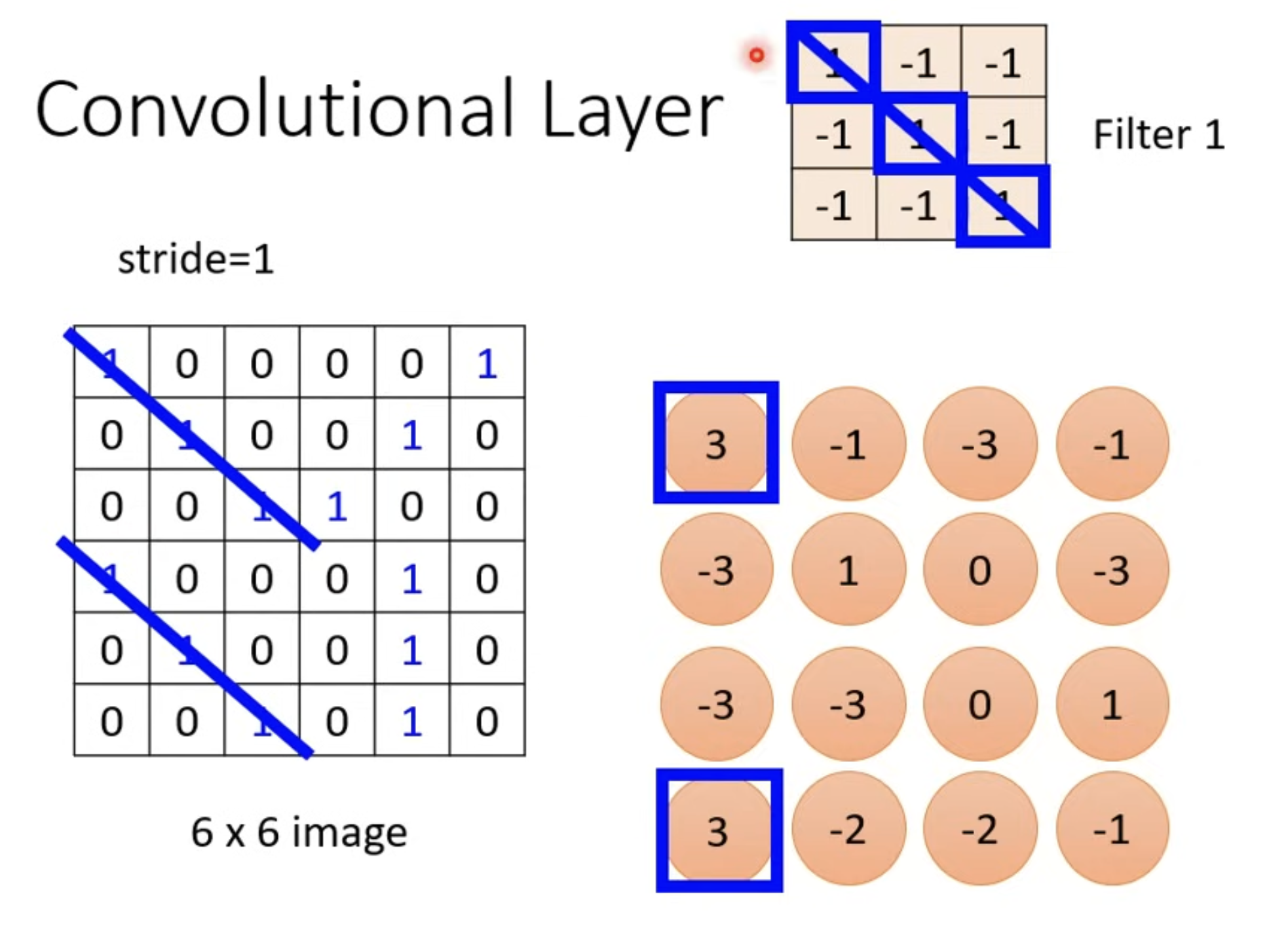
Filter 2

Convolutional Layer
1 Channel is 1 filter.
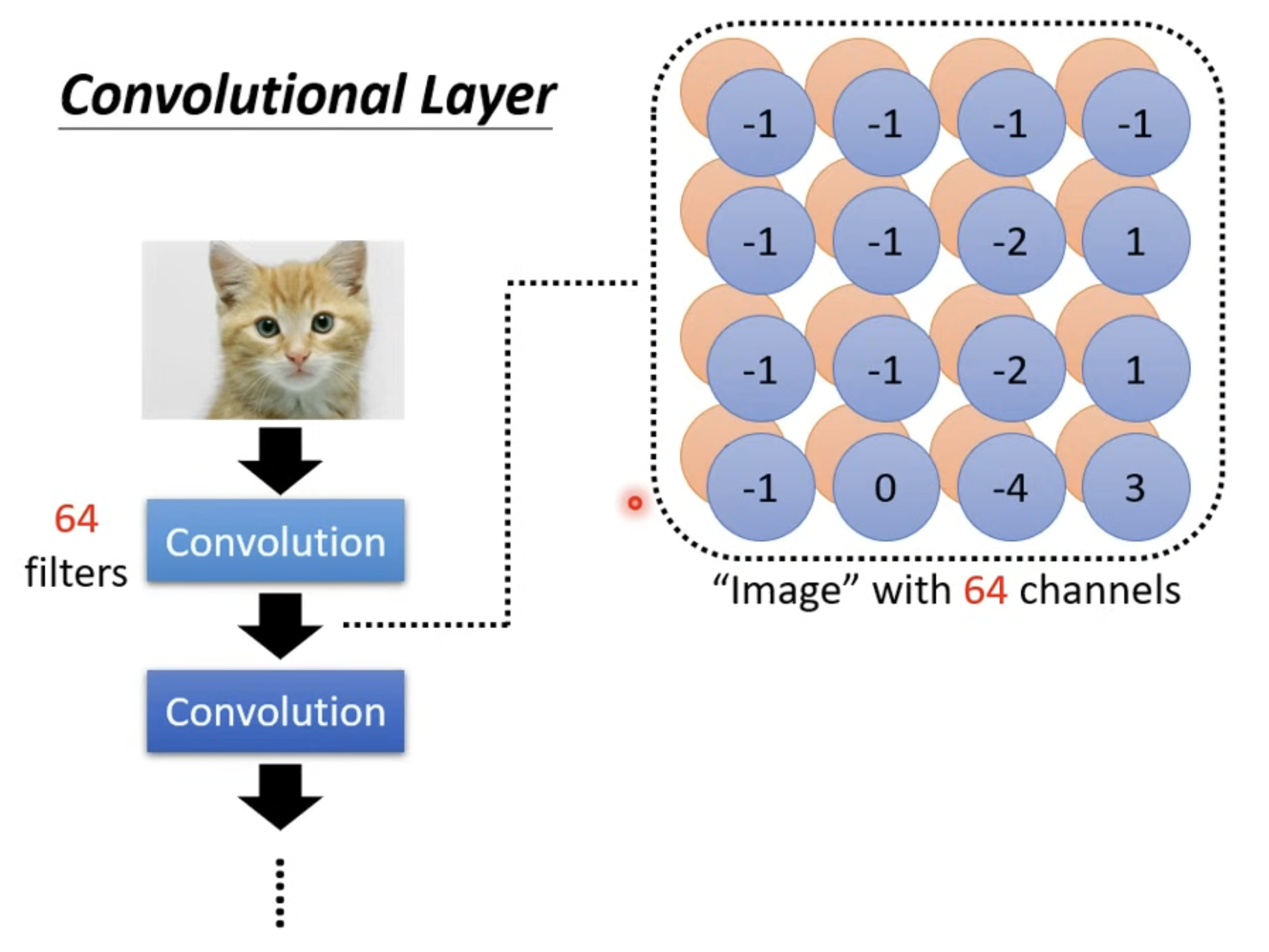
Multiple Convolutional Layer
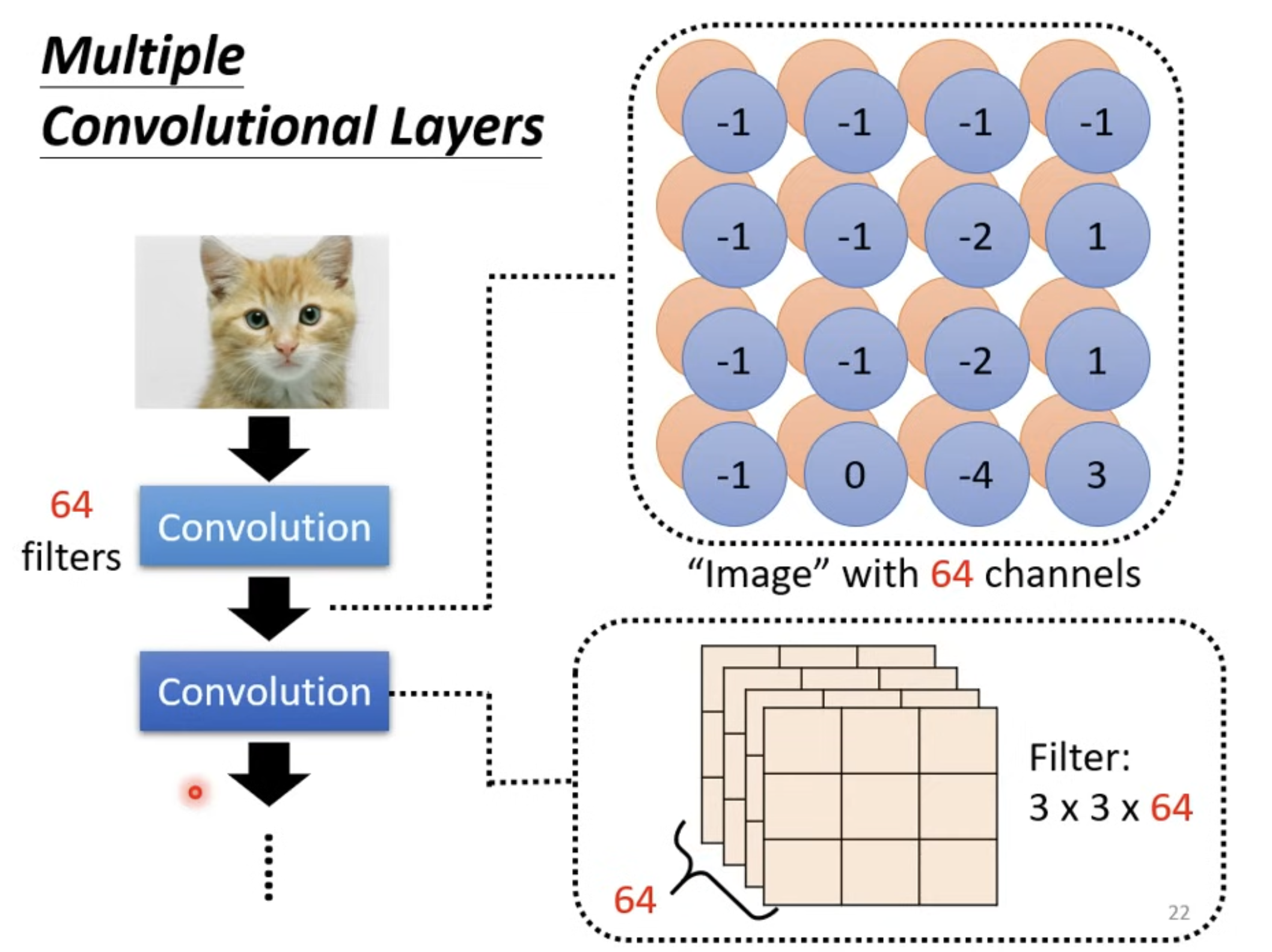
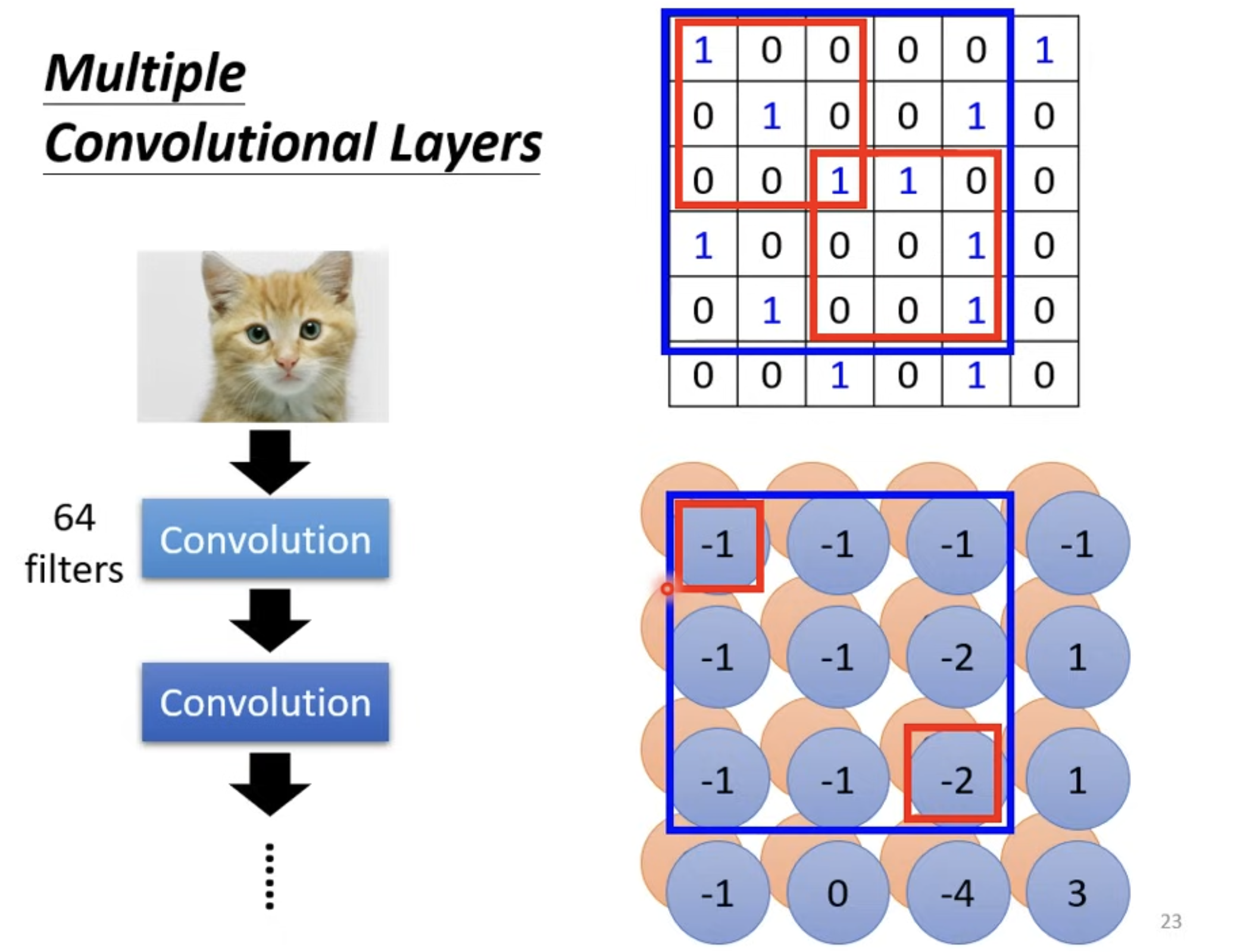
如果我们在 multiple 层还是选 3x3的范围的话,是否会导致无法识别大范围的 pattern。答案是不会的,因为经过第一层转化后的数据中,同一个 3x3 的范围其实是之前多个 3x3的数据叠加,范围实际上是比较大的。
Comparison of Two Stories
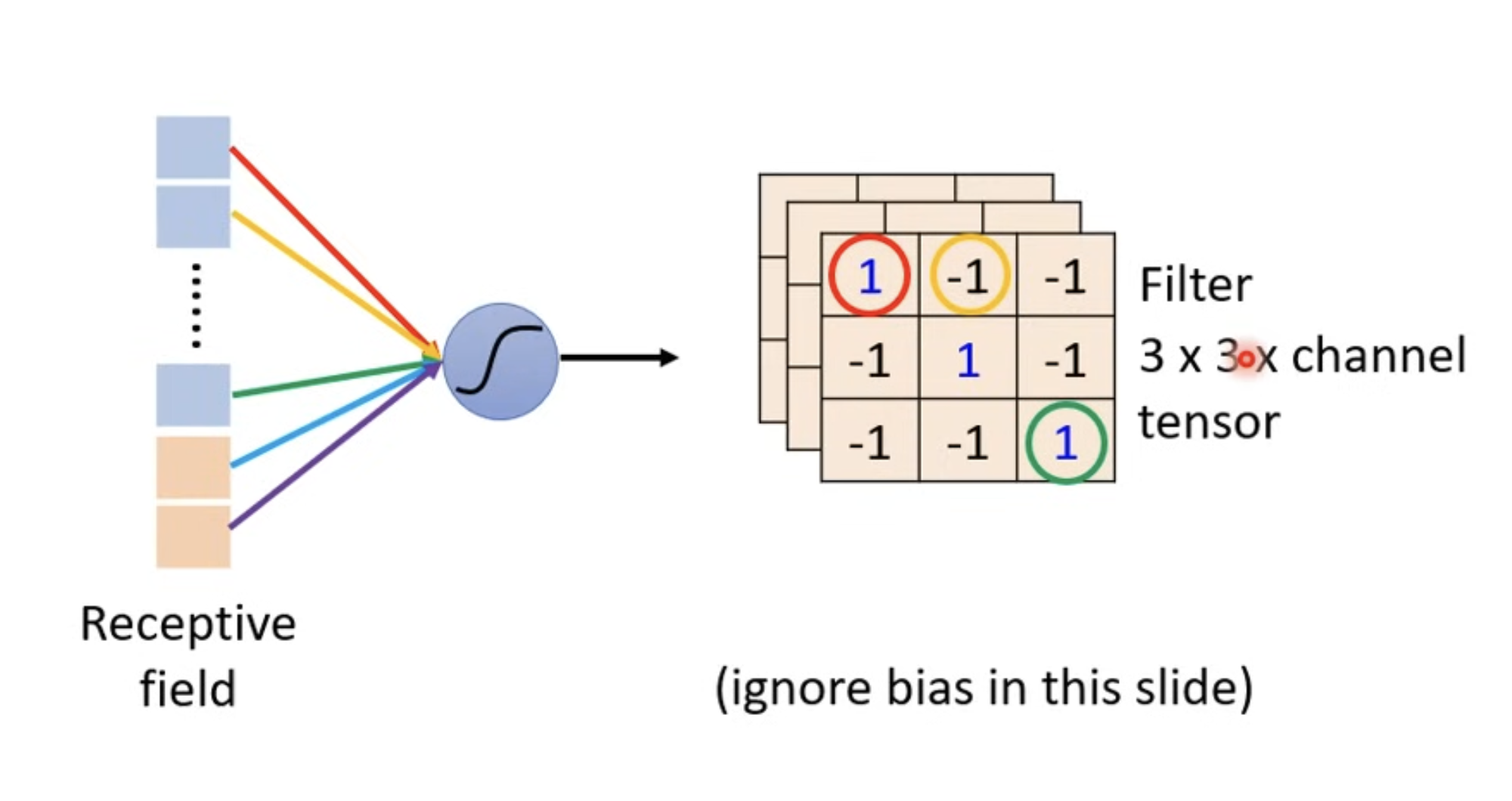
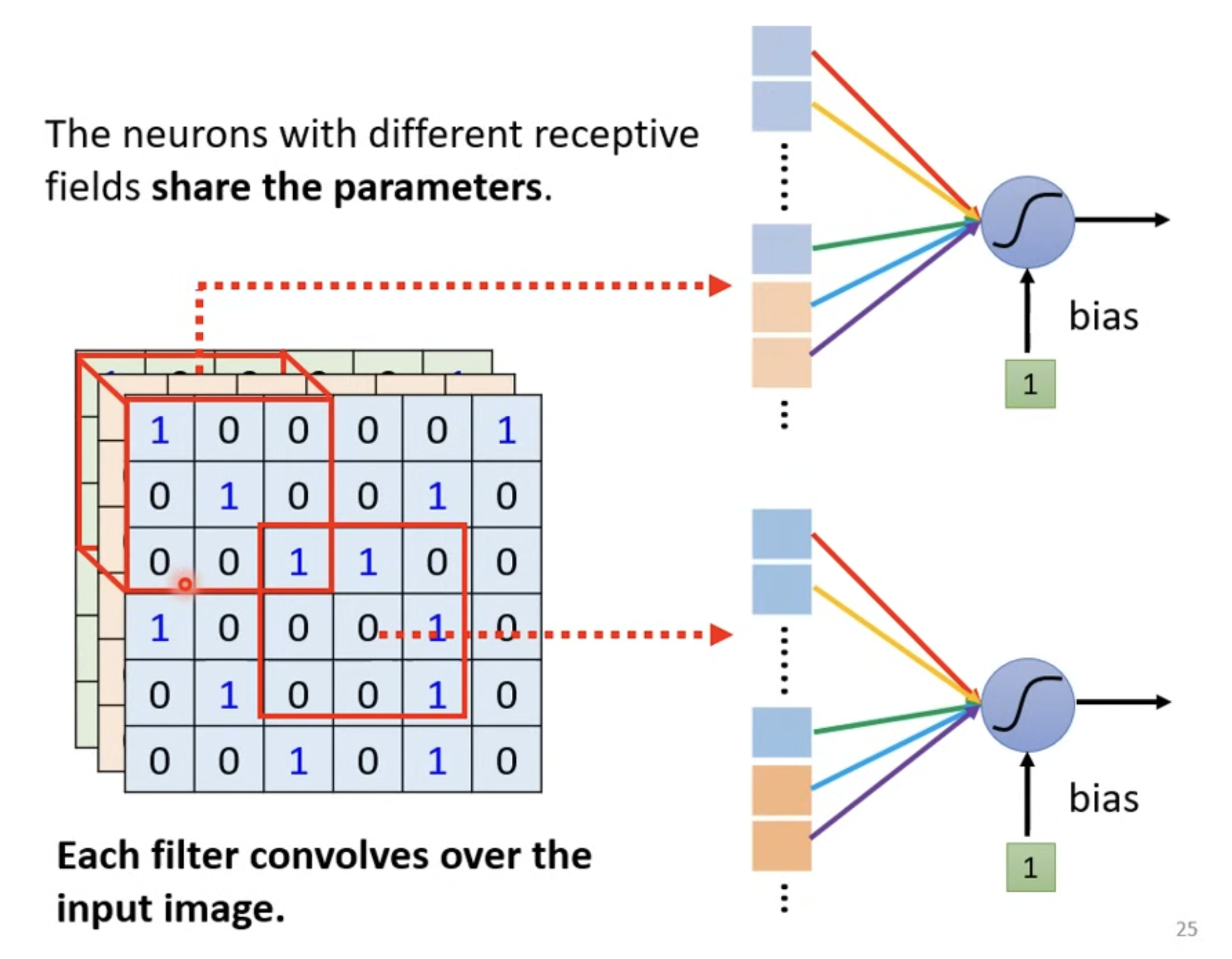
- Filter 共用了同样的 wights,并守备不同的范围;
- Share weight 这件事情,其实就是我们把 Filter 扫过整张图片;
- 把 Filter 扫过整张图片这件事请,就叫 Convolution;
- 总的来说,所谓的把 Filter 扫过整张图片这件事请就是不同的 receptive filelds, neural 可以共用参数,这组共用参数就是一个 filter。
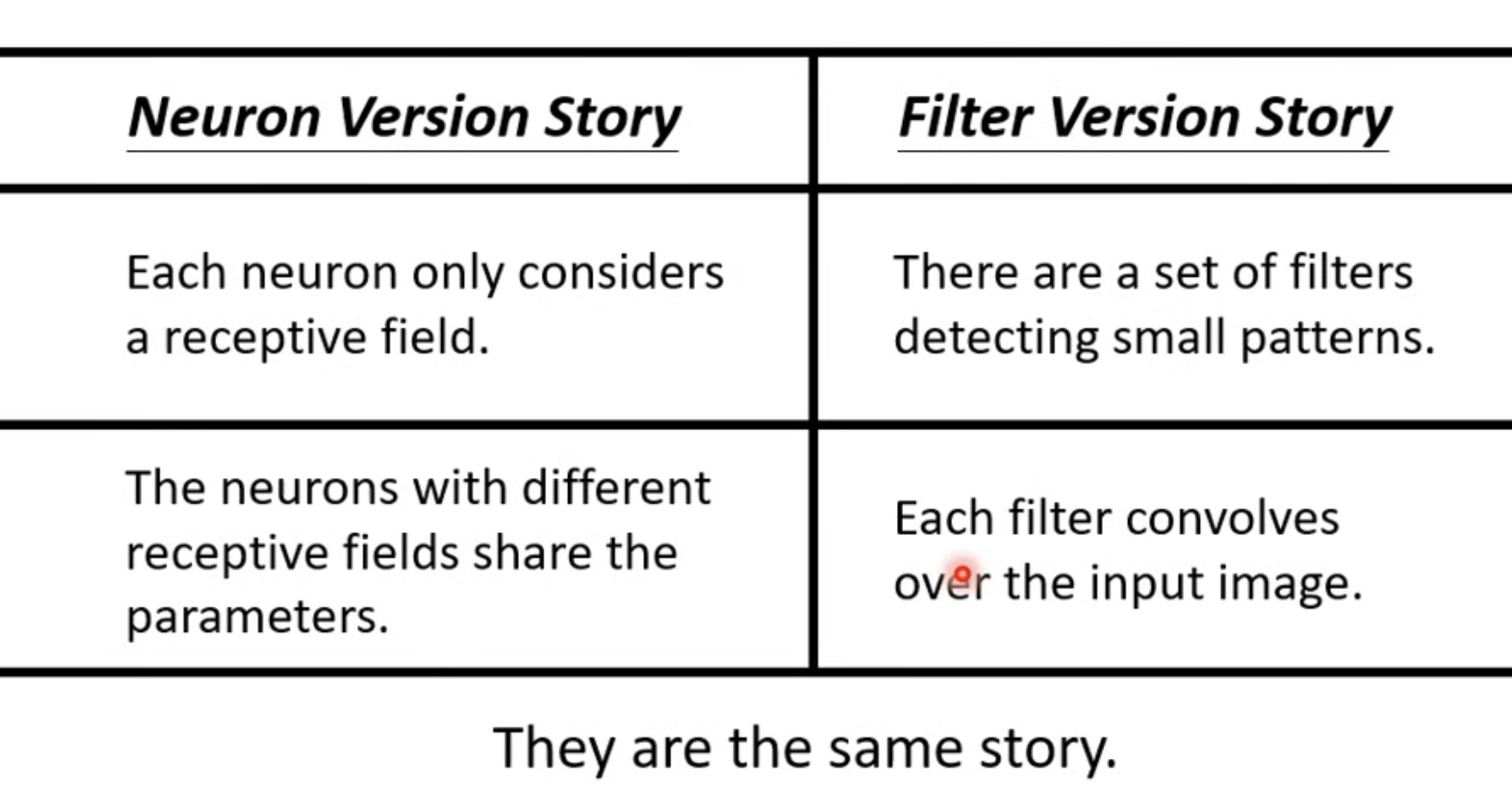
Oberservation 3
- Subsampling the pixels will not change the object.
- 把大图片缩小(把奇数项的 column 拿掉,把偶数项的 row 拿掉),图片的物体不会变。
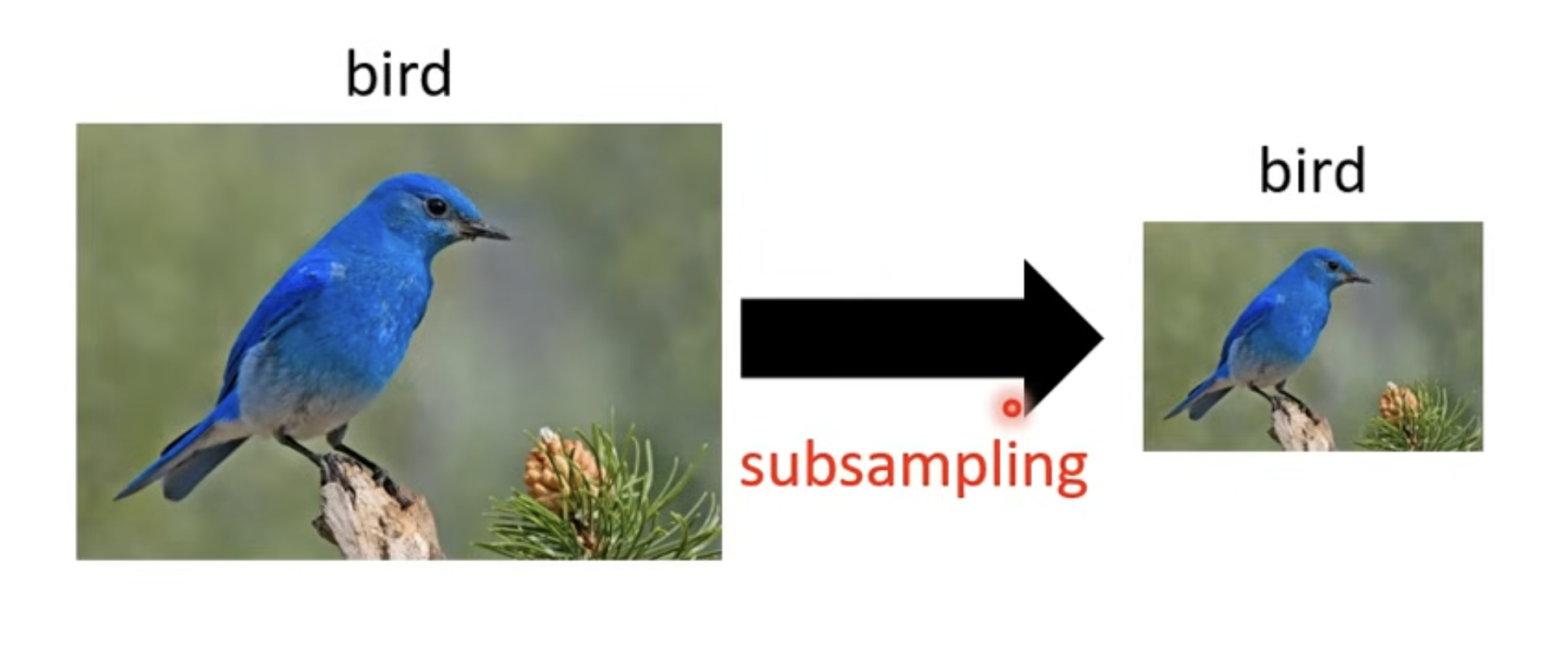
Pooling - Max Pooling
Pooling 没有需要学习的参数,所以它不是 layer,所以有人说它比较像 activation function (Sigmoid, ReLU)。
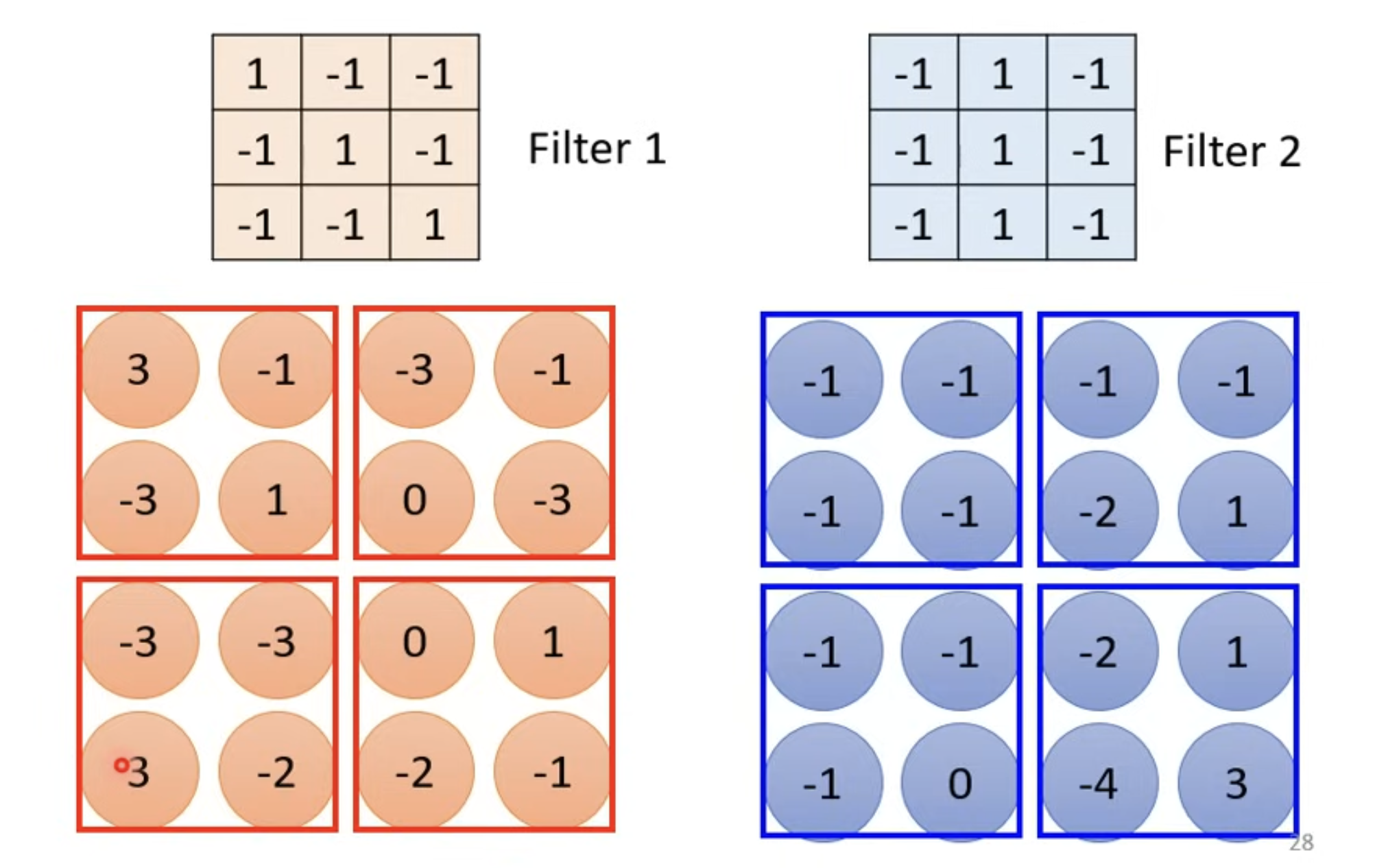
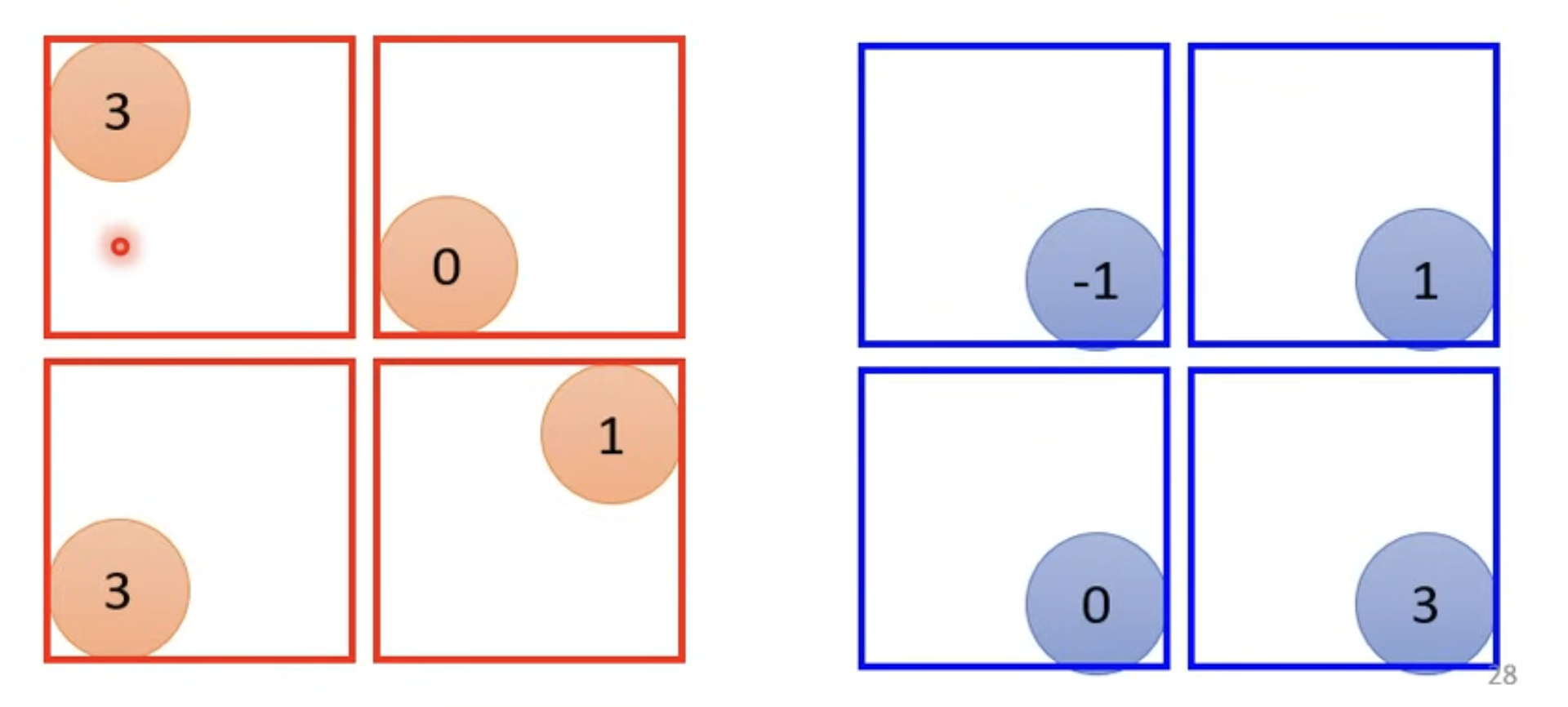
Pooling 会把图片变小。(这是为了减少运算量)
The whole CNN
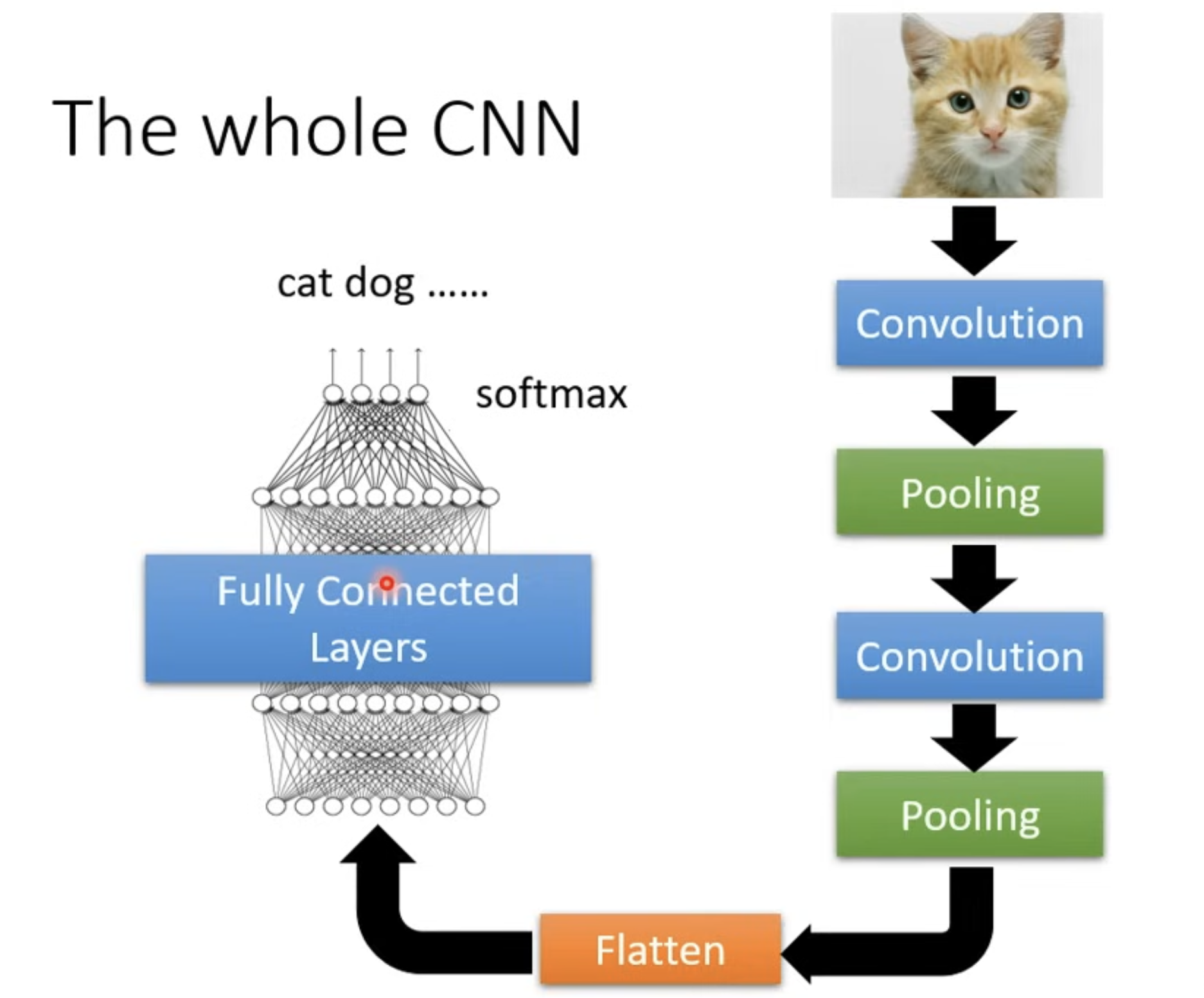
Application: Playing Go
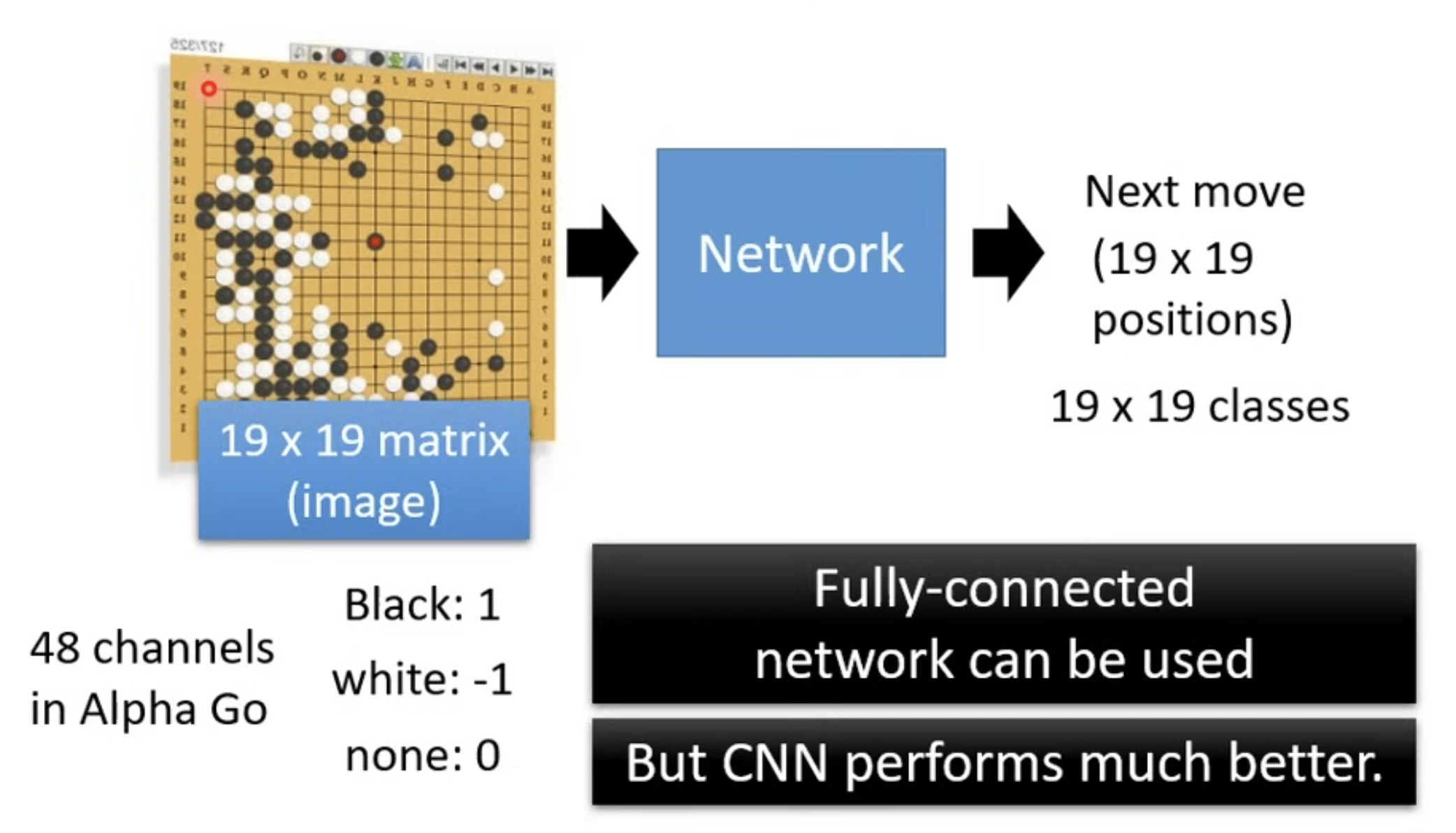
Why CNN for Go Playing ?
- Some patterns are much smaller than the whole image

- The same patterns appear in different regions.

- Subsampling the pixels will not change the object --> not use pooling in Playing Go
More Applications
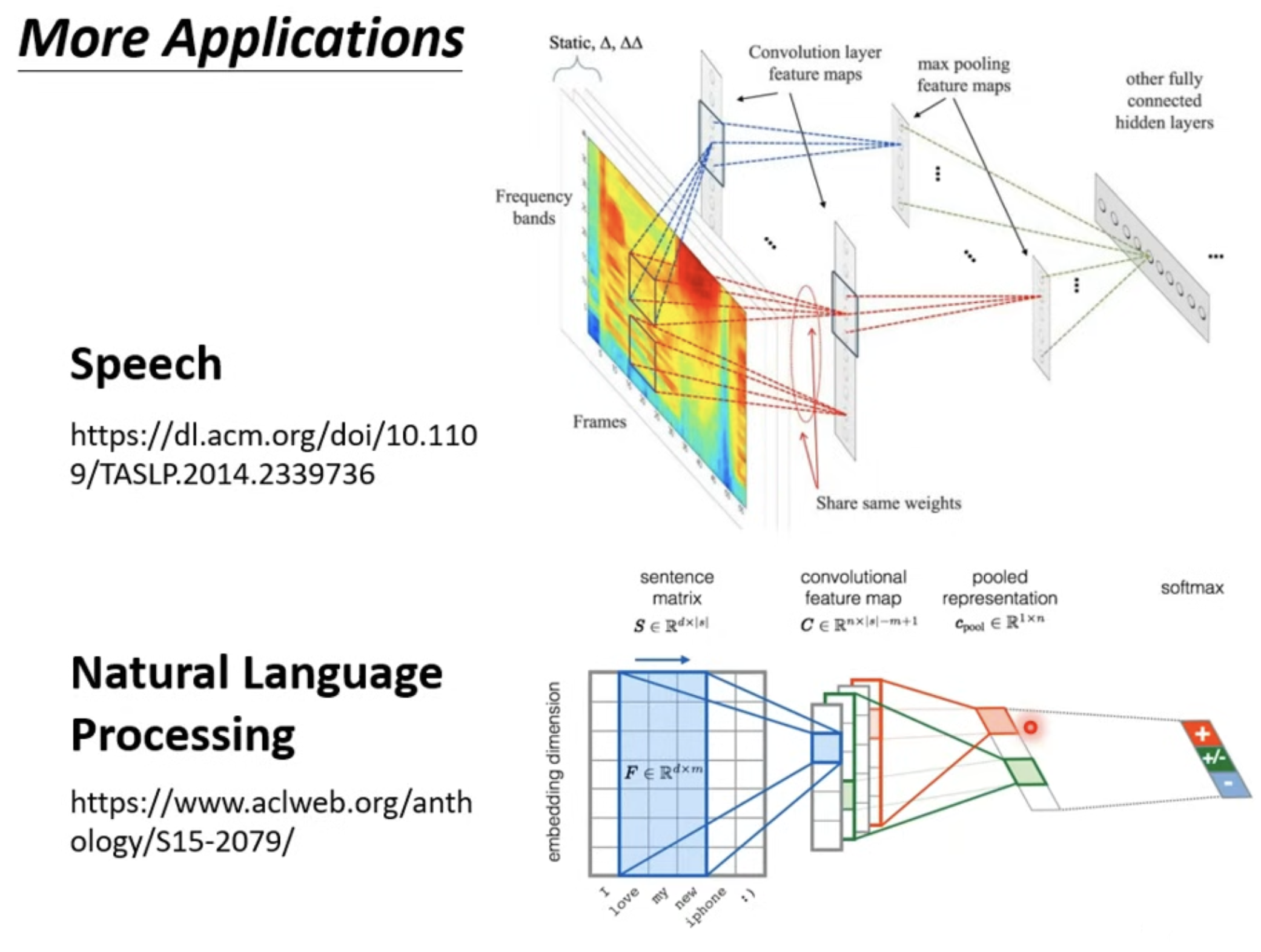
To learn more
- CNN is not invariant to scaling and rotation (we need data augmentation :) ).